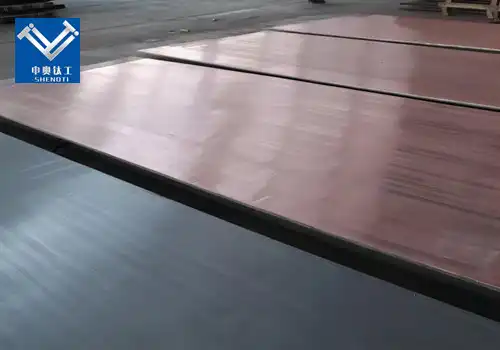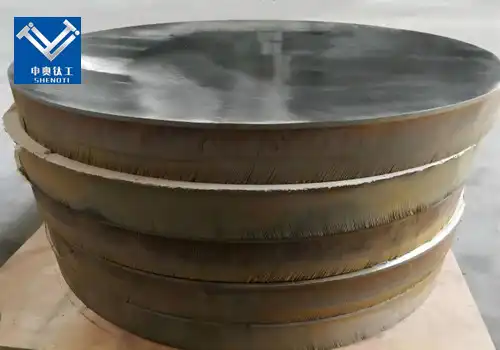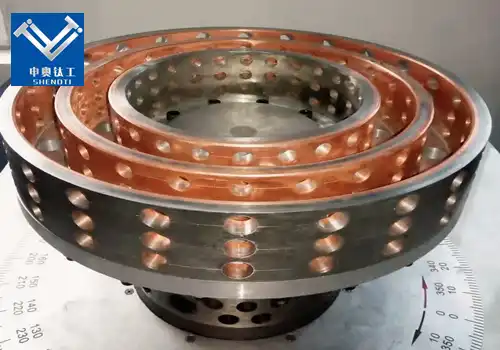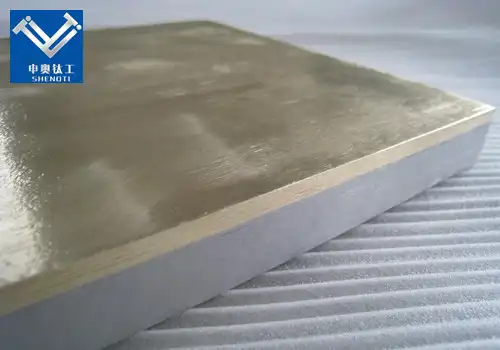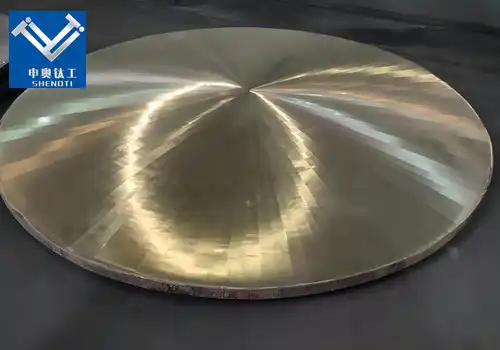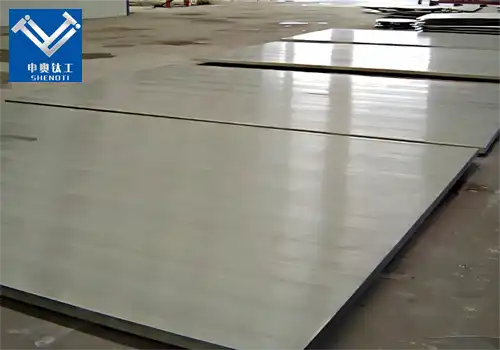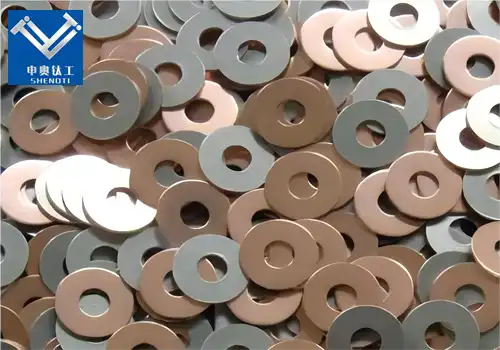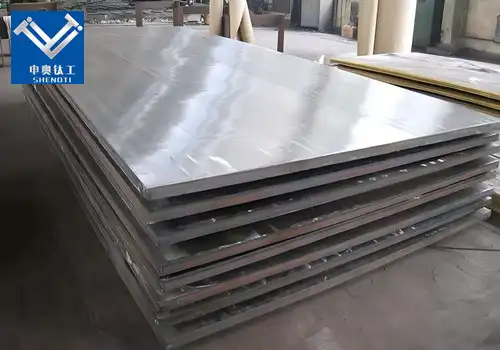
What Industries Are Aluminum-Titanium Steel Composite Plates Mainly Used In?
2025-05-15 14:19:06
What Industries Are Aluminum-Titanium Steel Composite Plates Mainly Used In?
Aluminum-titanium steel composite plates, often referred to as Three Layer Metal Composite Panels, represent a significant advancement in materials engineering. By combining the lightweight nature of aluminum, the exceptional corrosion resistance of titanium, and the structural strength of steel, these composite panels offer a unique set of properties that make them invaluable across various industries.
Aerospace and Aviation: How Do Aluminum-Titanium Steel Composite Plates Enhance Aircraft Performance?
The aerospace industry demands materials that offer high strength-to-weight ratios, corrosion resistance, and durability under extreme conditions. Aluminum-titanium steel composite plates meet these requirements, making them ideal for various aerospace applications.
Structural Components
In aircraft manufacturing, reducing weight without compromising strength is crucial for fuel efficiency and performance. These composite plates are used in:
Fuselage Panels: Providing a lightweight yet strong structure.
Wing Structures: Enhancing lift-to-weight ratios.
Landing Gear Components: Offering durability and resistance to stress.
Thermal and Corrosion Resistance
The titanium layer offers excellent resistance to high temperatures and corrosion, essential for components exposed to varying atmospheric conditions and engine heat.
Case Study: Boeing 787 Dreamliner
The Boeing 787 utilizes composite materials extensively, including titanium-based composites, to achieve a 20% reduction in fuel consumption compared to similar-sized aircraft.
Marine and Offshore Engineering: Why Are These Composite Plates Ideal for Harsh Marine Environments?
Marine environments are notoriously harsh, with constant exposure to saltwater leading to corrosion and material degradation. Aluminum-titanium steel composite plates offer solutions to these challenges.
Shipbuilding
Used in hulls, decks, and superstructures, these composites provide:
Corrosion Resistance: Titanium's resistance to seawater prevents rust and degradation.
Weight Reduction: Aluminum's lightness contributes to improved fuel efficiency and speed.
Structural Integrity: Steel ensures the necessary strength and durability.
Offshore Platforms
In oil rigs and wind farms, these materials are employed in:
Structural Supports: Withstanding harsh weather and sea conditions.
Pipelines: Resisting corrosion from saltwater and transported substances.
Environmental Impact
The longevity and durability of these composites reduce the need for frequent replacements, leading to lower environmental footprints over time.
Chemical and Petrochemical Industries: How Do These Composite Plates Improve Safety and Efficiency?
Chemical processing environments involve exposure to corrosive substances and extreme temperatures. Aluminum-titanium steel composite plates are increasingly used to enhance safety and efficiency.
Storage Tanks and Reactors
The inner titanium layer resists corrosion from acids and chemicals, while the steel provides structural strength, and aluminum reduces overall weight.
Heat Exchangers
These composites withstand high temperatures and corrosive fluids, making them ideal for heat exchanger applications in chemical plants.
Piping Systems
Used in transporting aggressive chemicals, these pipes benefit from the composite's corrosion resistance and mechanical strength.
Case Study: Petrochemical Plant in the Middle East
A petrochemical facility reported a 30% increase in equipment lifespan after switching to aluminum-titanium steel composite materials, resulting in significant cost savings and reduced downtime.
Architectural and Construction: What Makes These Composite Panels Suitable for Modern Buildings?
In contemporary architecture, materials that offer aesthetic appeal, durability, and sustainability are highly valued. Aluminum-titanium steel composite panels meet these criteria.
Facades and Cladding
These panels provide a sleek, modern appearance while offering resistance to weathering and corrosion, ensuring longevity and minimal maintenance.
Structural Elements
Used in beams and supports, the composite's strength-to-weight ratio allows for innovative architectural designs without compromising structural integrity.
Sustainability
The durability and recyclability of these materials contribute to sustainable building practices, aligning with green building certifications and standards.
Automotive Industry: How Do These Composite Plates Contribute to Vehicle Performance?
The automotive sector continually seeks materials that enhance performance, safety, and fuel efficiency. Aluminum-titanium steel composite plates offer several advantages.
Chassis and Body Panels
The lightweight nature of aluminum combined with the strength of steel improves fuel efficiency and vehicle handling.
Exhaust Systems
Titanium's heat resistance makes it ideal for exhaust components, reducing weight and improving performance.
Safety Features
The composite's strength enhances crashworthiness, providing better protection for occupants.
Electric Vehicles (EVs)
In EVs, weight reduction is critical for extending range. These composites help achieve lighter vehicles without sacrificing safety or performance.
Medical and Healthcare: Why Are These Composite Plates Used in Medical Equipment?
Medical applications demand materials that are biocompatible, durable, and resistant to corrosion. Aluminum-titanium steel composite plates fulfill these requirements.
Surgical Instruments
The composites' strength and resistance to sterilization processes make them suitable for surgical tools.
Implantable Devices
Titanium's biocompatibility allows for its use in implants, while the composite structure provides the necessary mechanical properties.
Medical Imaging Equipment
The non-magnetic nature of titanium makes these composites suitable for MRI-compatible devices and components.
Renewable Energy: How Do These Composite Plates Support Sustainable Energy Solutions?
In the renewable energy sector, materials that withstand harsh environments and offer longevity are essential. Aluminum-titanium steel composite plates are utilized in various applications.
Wind Turbines
Used in structural components, these composites offer the necessary strength and corrosion resistance for offshore and onshore wind turbines.
Solar Panel Mounts
The lightweight and durable nature of the composites make them ideal for supporting solar panels, especially in coastal areas where corrosion is a concern.
Hydro Power Plants
In hydroelectric facilities, these materials are used in components exposed to water flow, benefiting from their corrosion resistance and mechanical strength.
Defense and Military: What Role Do These Composite Plates Play in National Security?
Defense applications require materials that offer protection, durability, and performance under extreme conditions. Aluminum-titanium steel composite plates are increasingly incorporated into military equipment.
Armored Vehicles
The composites provide ballistic protection while reducing vehicle weight, enhancing mobility and fuel efficiency.
Naval Vessels
In ships and submarines, these materials offer resistance to corrosion and structural strength, crucial for longevity and performance.
Aerospace Defense
Used in military aircraft and missiles, the composites contribute to structural integrity and resistance to high temperatures and stress.
Food Processing and Pharmaceutical Industries: How Do These Composite Plates Ensure Hygiene and Safety?
In industries where hygiene and contamination prevention are paramount, materials must be easy to clean and resistant to corrosion. Aluminum-titanium steel composite plates are well-suited for such environments.
Processing Equipment
Used in mixers, conveyors, and storage tanks, the composites resist corrosion from cleaning agents and processed materials.
Cleanroom Environments
The smooth, non-porous surfaces of these composites prevent bacterial growth and are easy to sterilize, making them ideal for pharmaceutical manufacturing.
Packaging Machinery
The durability and hygiene properties of the composites ensure long-lasting and safe operation of packaging equipment.
Electronics and Telecommunications: How Do These Composite Plates Enhance Device Performance?
In the electronics industry, materials that offer electromagnetic shielding, thermal management, and structural support are essential. Aluminum-titanium steel composite plates provide these benefits.
Device Casings
The composites offer protection against electromagnetic interference (EMI) and physical damage, ensuring device reliability.
Heat Sinks
The thermal conductivity of aluminum and titanium aids in dissipating heat from electronic components, maintaining optimal operating temperatures.
Structural Components
In telecommunications infrastructure, these materials provide durable and lightweight support structures for antennas and other equipment.
Conclusion
Aluminum-titanium steel composite plates, or Three Layer Metal Composite Panels, have revolutionized material applications across various industries. Their unique combination of lightweight, strength, corrosion resistance, and durability makes them indispensable in sectors ranging from aerospace to electronics.
YOU MAY LIKE











